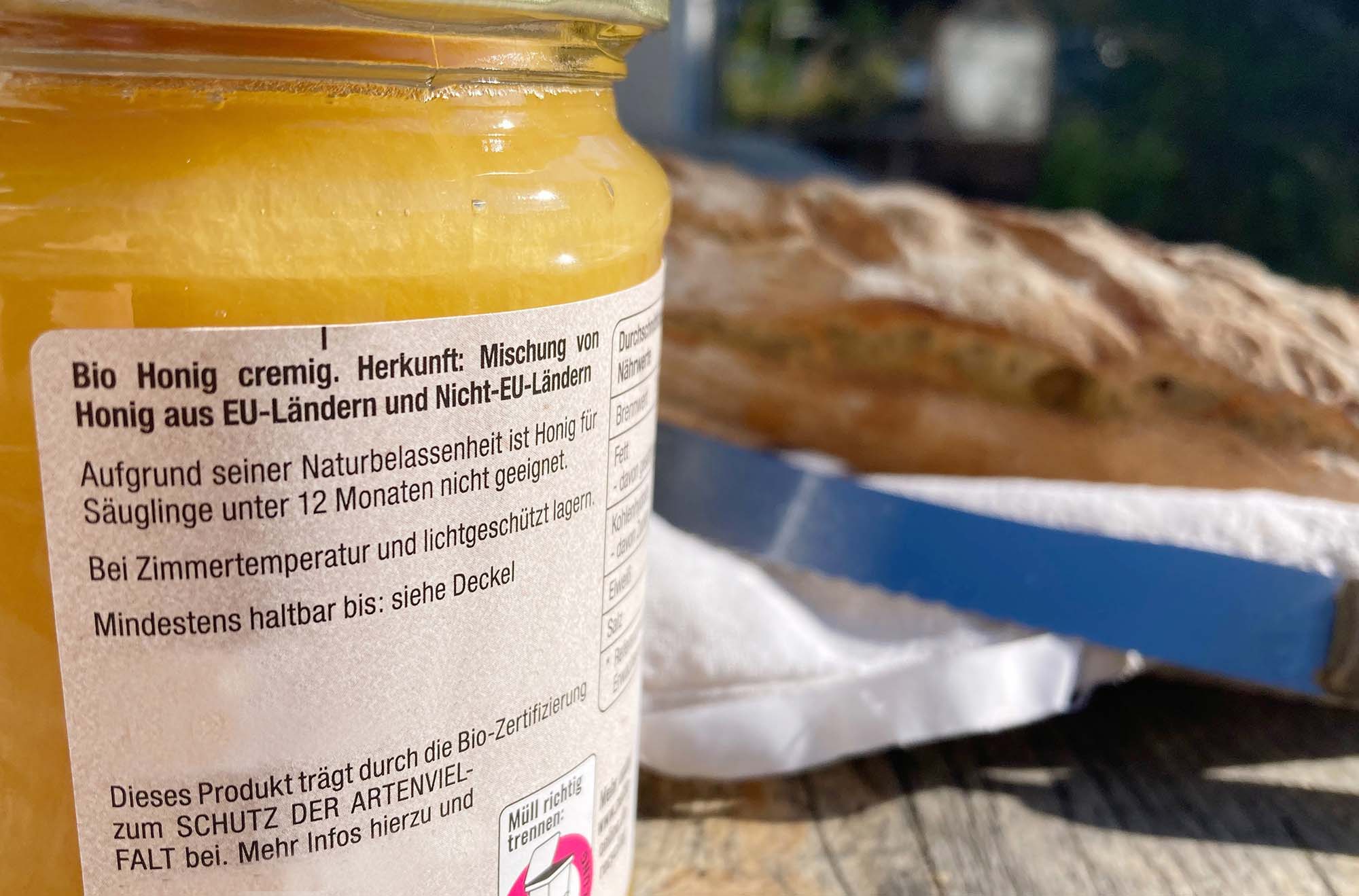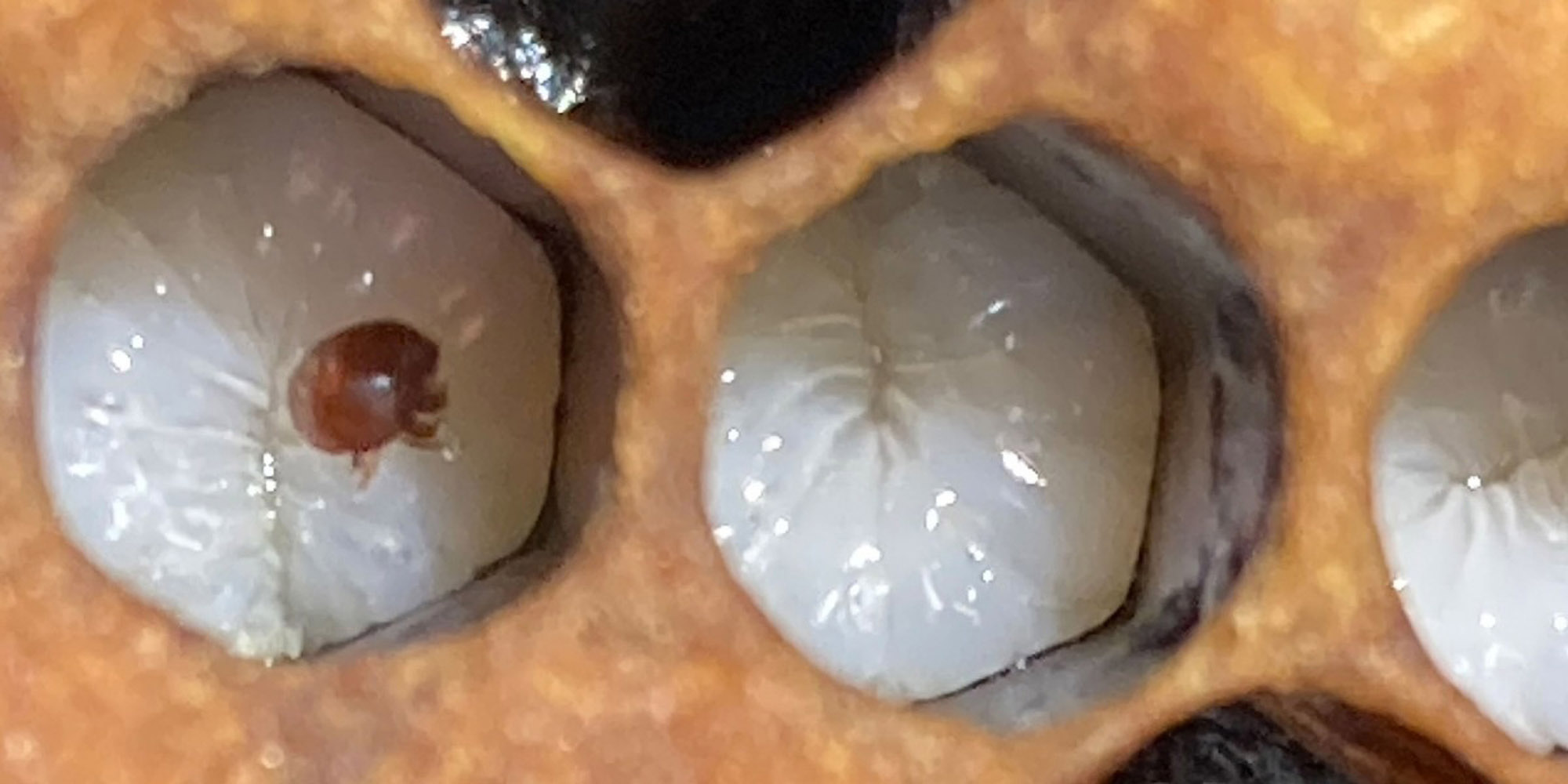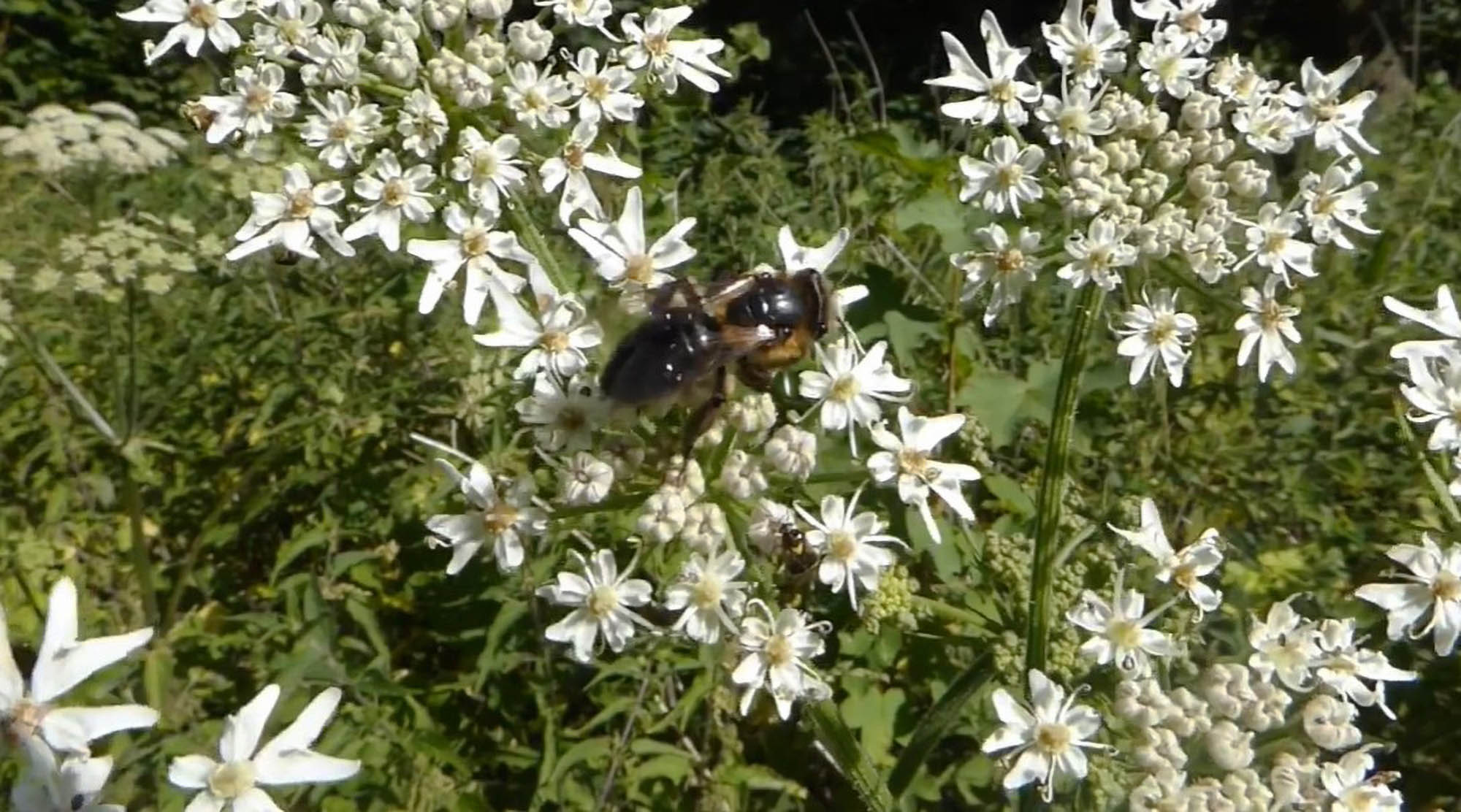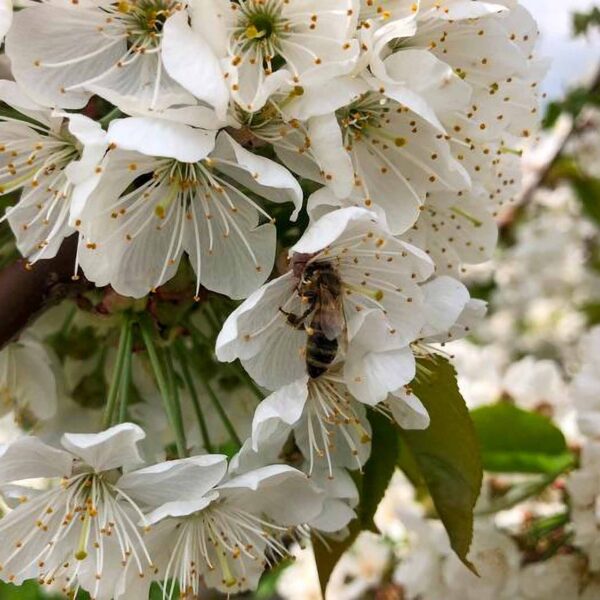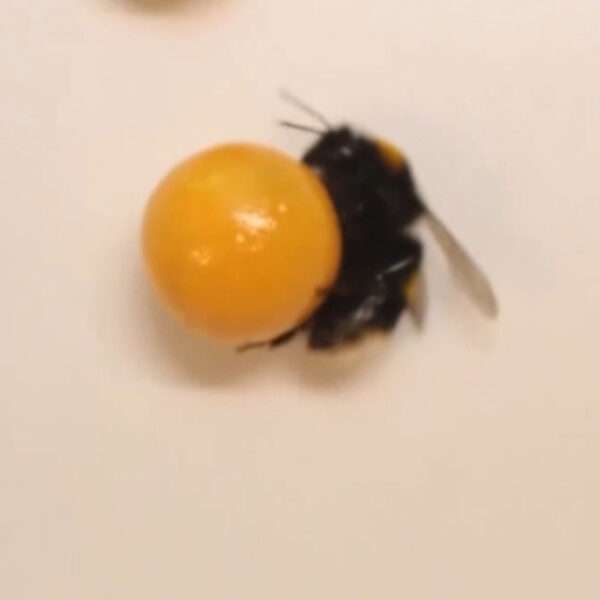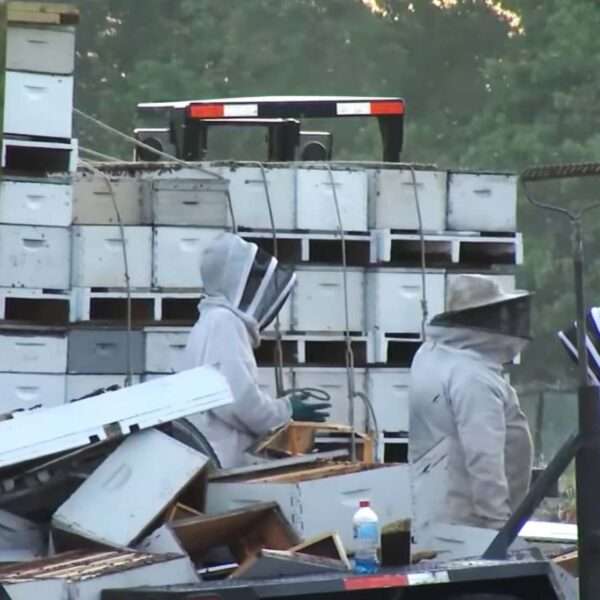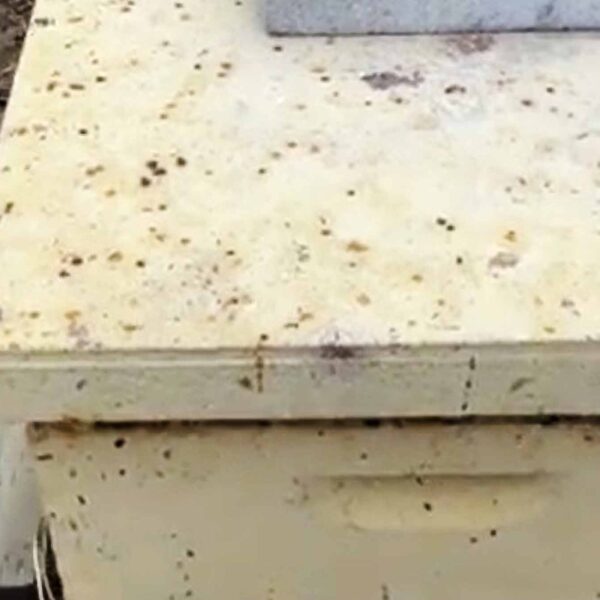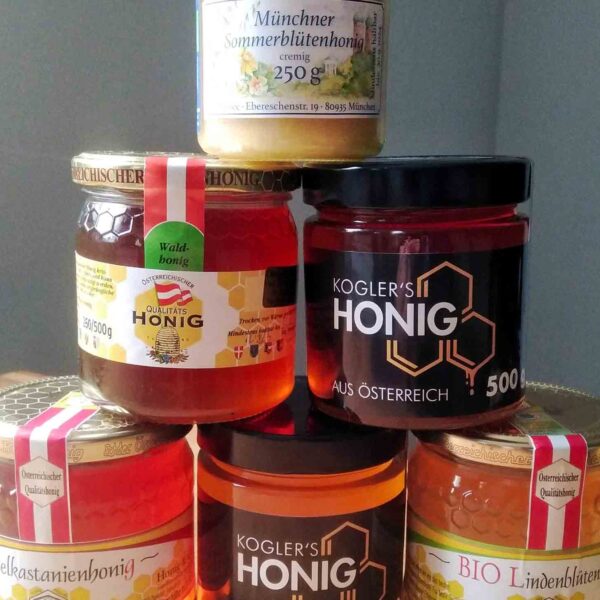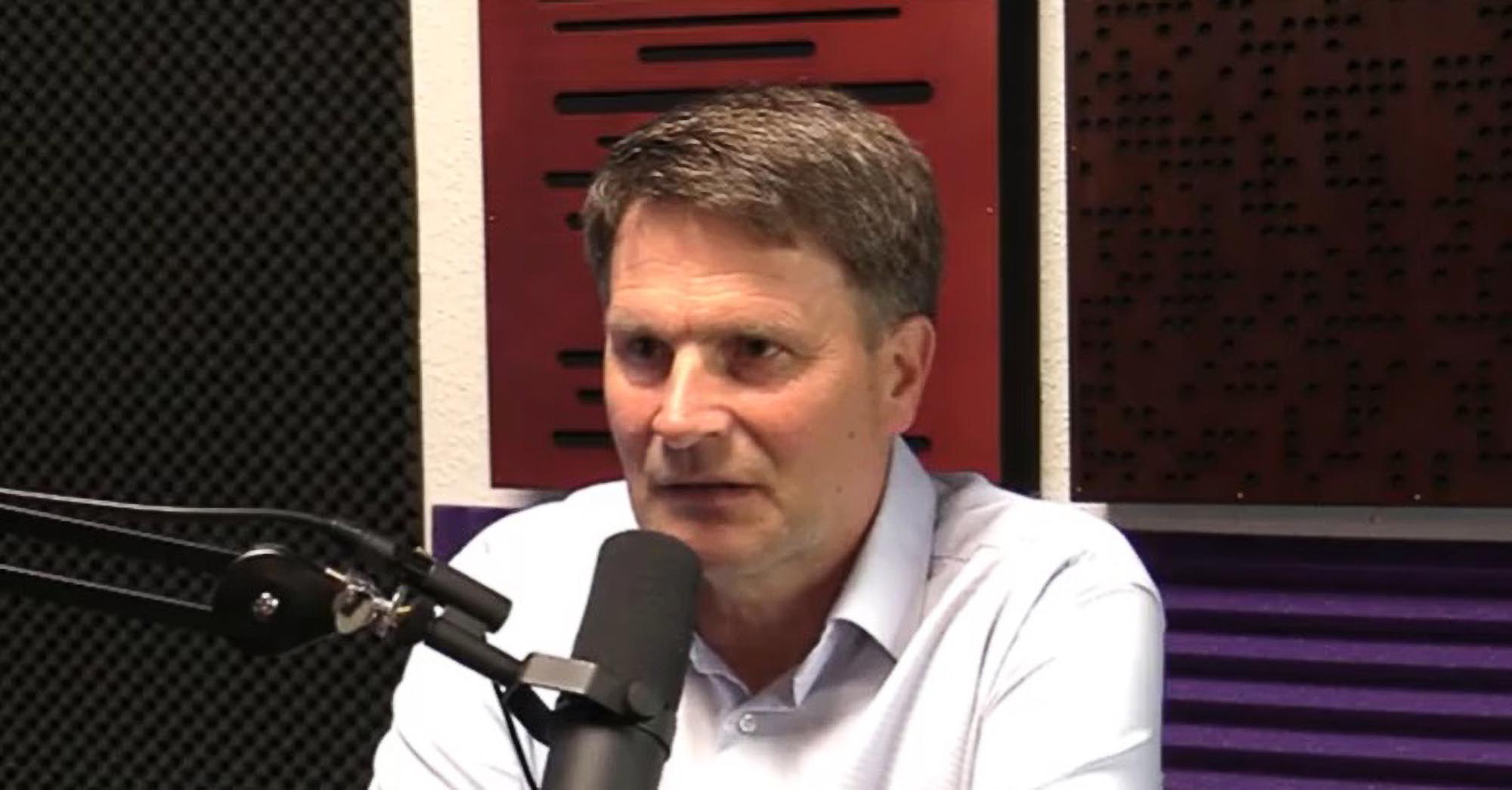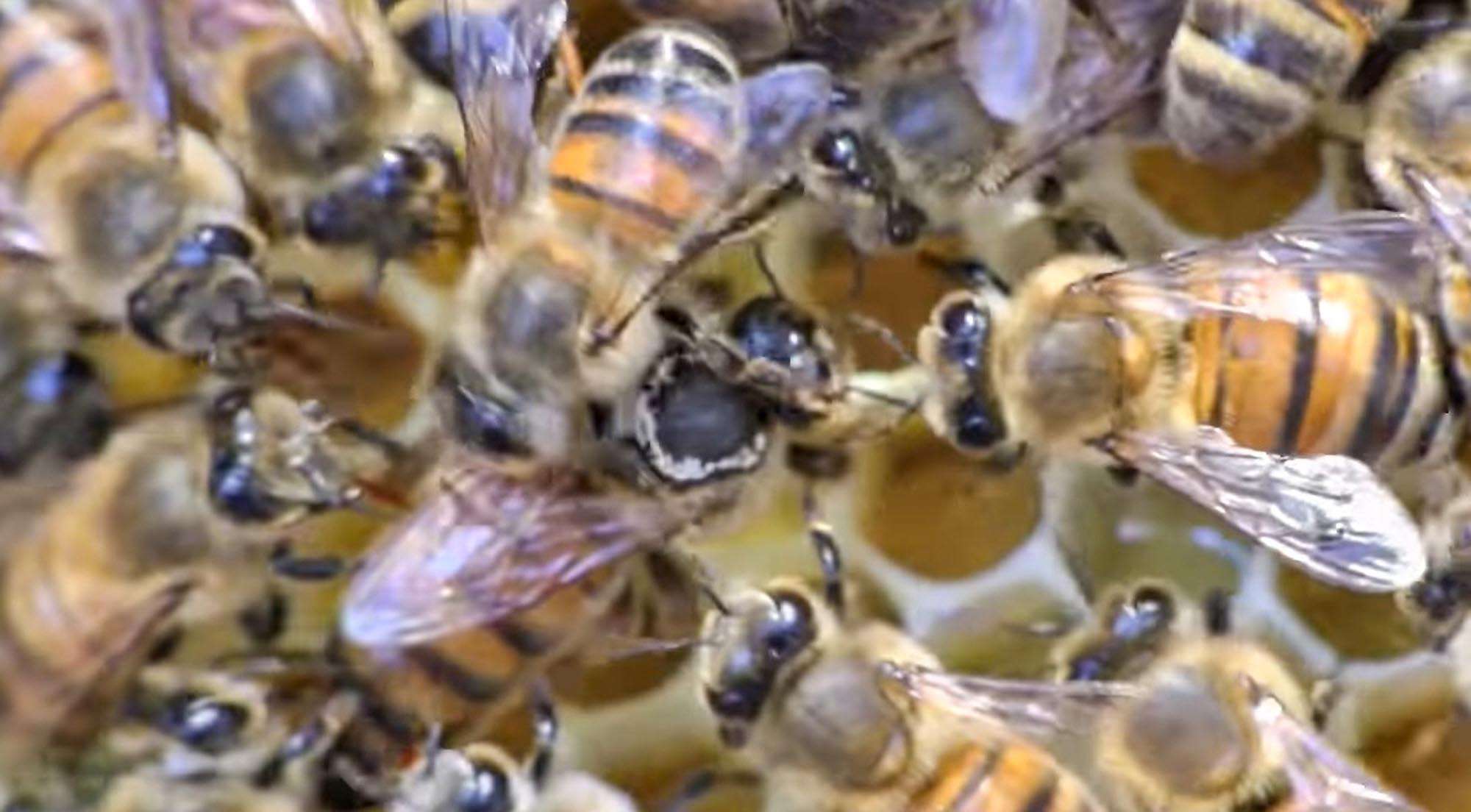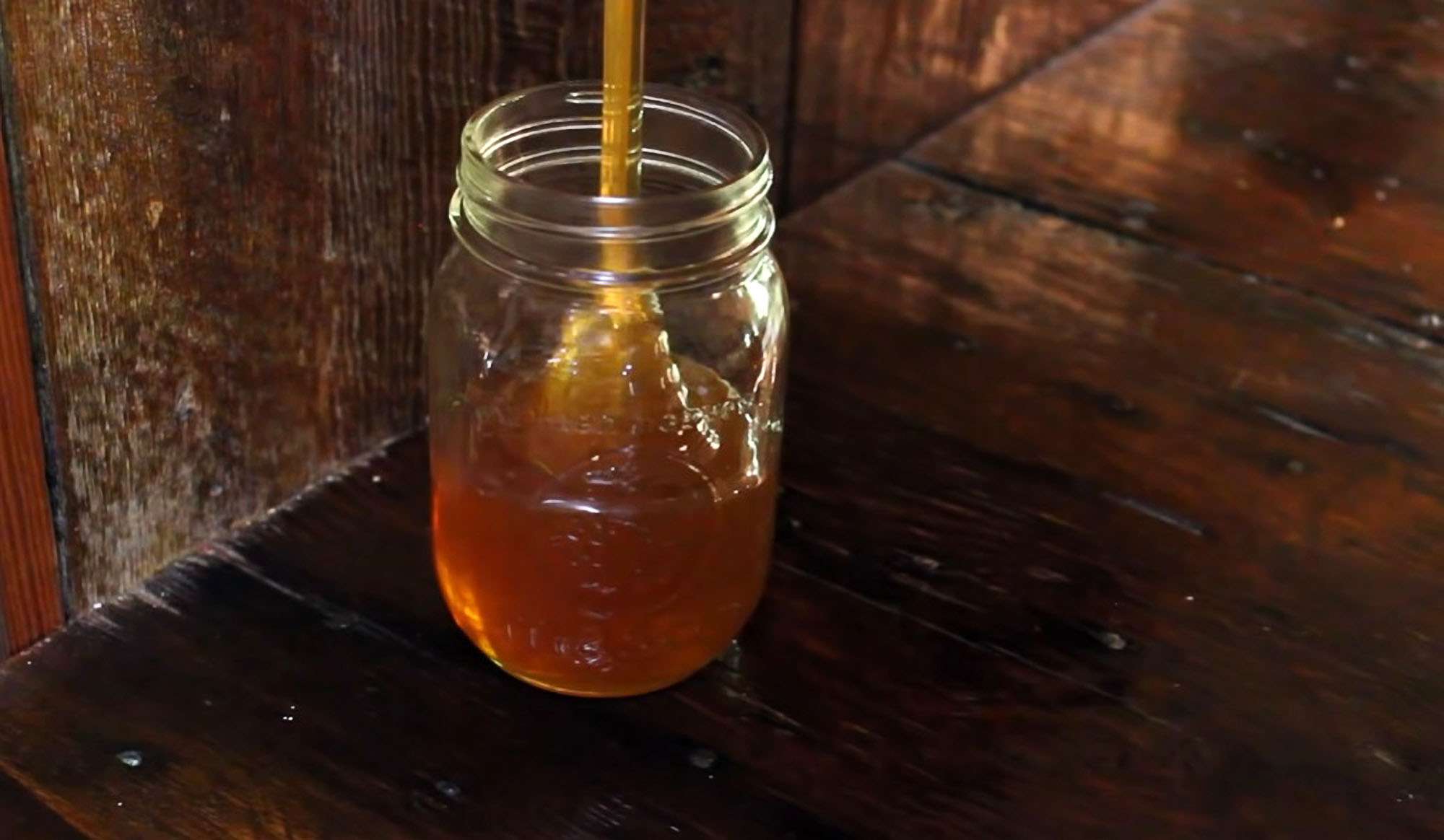Germany’s professional beekeepers have called on lawmakers for more support against honey produced at low costs abroad.
The Union of Professional Beekeepers in Germany said its members suffered a decline in turnover between 20 and 40 per cent this year. The organisation cited the rising price of petrol, electricity and jars as the main reason.
In an open letter to Environment Minister Steffi Lemke of the Green Party, the apiarists complained: “Our market is currently literally flooded by diluted honey imports.”
They argued: “Nearly every second glass of honey is laced with sugar syrup.”
The organisation claimed that this development would force beekeepers across Germany to lower the price of their products.
The association referred to findings by the European Commission’s (EC) anti-fraud agency OLAF which sent shockwaves across Europe earlier this year.
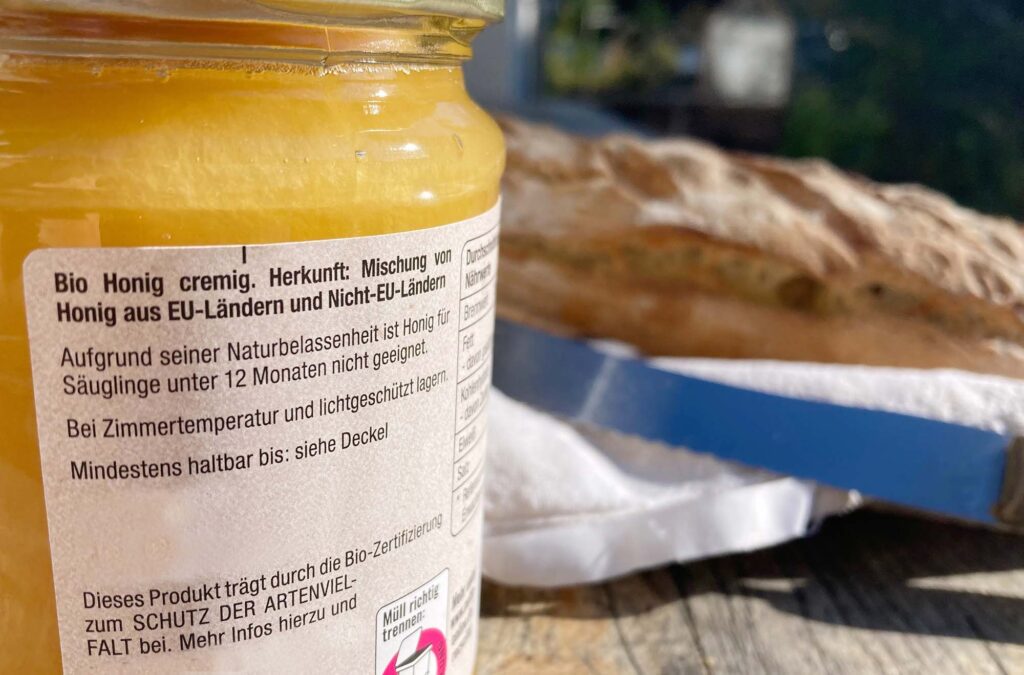
The experts checked more than 300 samples of honey coming to Europe from different non-EU countries. Their investigation revealed that 46 per cent of the products included some sort of syrup, a procedure which is a violation of the EU’s food regulations.
However, Martina Janke from the Institute for Bees in Celle, Lower Saxony, recently dismissed concerns that the shelves in shops were full of illicit honey-sugar mixtures. She emphasised Germany was a “very safe marketplace” in this concern.
Martina explained: “These checks took place at the EU borders before the honey arrived at the importing companies. In Germany, there is a great interest that pure products are on sale.”
In their open letter to the minister, Germany’s full-time apiarists also appealed to European Parliament delegates to back their appeal for the introduction of more precise labelling restrictions.
They said: “We need the support of all MEPs to save the bees, the professional beekeepers and honey as a quality product.”
The organisation, which represents around 6,500 apiarists, criticised that its foreign competitors would currently benefit from the duty-free circumstances introduced by free trade agreements.
Last year, full-time and amateur beekeepers all over Germany were in charge of 990,000 colonies. They managed to cover 43 per cent of the overall domestic demand for honey.
The country’s average per-capita consumption of the product rose by 15 per cent to 935 grammes from 2021 to 2022.

